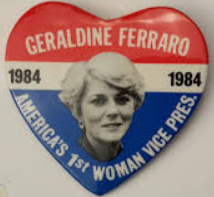Vice presidential debates are seldom memorable, but the October 7 contest between Republican Mike Pence and Democrat Kamala Harris broke new ground. Aside from the first appearance by a woman of color on the vice presidential debate stage,
this debate featured a fly who by the end of the evening had 4,067 social media followers. The Fly landed in Vice President Pence’s hair and stayed over two minutes. We could comment on the symbolism. But we won’t. Don’t ever say 2020 hasn’t been a strange year.Beyond the adventures of The Fly, most post-debate analysis focused on whether it
changed the trajectory of a race that’s looking like a potential blowout. The Biden-Harris ticket entered the debate leading by 9.5 points in the fivethirtyeight.com polling average. Polls released right before the debate showed Biden-Harris ahead by as much as 16 points.We agree with the pundit consensus that
nothing in the debate fundamentally changed the race even though CNN’s instant poll showed Harris winning, 59-38. Women thought Harris won, 69-31.
Each Had Their Moments
Both candidates entered the debate with specific objectives, some multi-layered and nuanced. Pence, a smooth speaker who
politely, even gently, parrots Republican talking points, defended President Trump’s disturbing coronavirus, climate change, and foreign policy failures. He tried presenting more of a conventional Republican agenda and less of Trump’s personality cult, arguably describing a presidency that doesn’t exist. He pushed the case Harris will lead Biden down a leftist, socialist path that over- taxes and overregulates. Pence made his points and got whatever mileage he could out of raising that set of issues.Harris, being part of a ticket that’s ahead, but
still somewhat unknown herself, had to get people comfortable with the idea she can handle the presidency since Biden would take office at age 78. Responding to the succession question, she reminded voters of her resume as a three-time elected official. She had strong moments on restoring America’s role in the world and the virtue in the Biden-Harris candidacy of having significant Republican support. She also tried laying out the ticket’s program since Biden didn’t get to in the first presidential debate because of Trump’s interruptions and bullying. She effectively put the Affordable Care Act on the ballot with the reminder, “They’re coming for you,” when she identified a list of impacts terminating the act would cause. The instant poll results and the commentary suggested she succeeded.
Missed Opportunities
If both candidates had their moments, both missed opportunities. Harris, for example, could have used the Breonna Taylor question
in promoting how a Biden Justice Department might use federal civil rights laws in such cases and remedy the failures of Bill Barr as attorney general. She also could have been stronger in her condemnation of the White House events that apparently spread the corona virus.Pence, for his part, simply ducked a number of questions, like whether he had conferred with Trump about a transfer of power in light of the president’s covid-19 illness. The country needs an answer to that question and a good one might have done the Trump campaign some political good. Pence may have been catering to Trump with his refusal to adhere to the time limits, but had he followed them, he might have gained credibility for making the debate process more dignified and civil. Critically, Pence didn’t answer the core values question of whether Trump will peacefully transfer power if he loses.
Gender and Race
Inevitably gender and race were likely to
become part of this debate. The historic nature of the Harris candidacy assured that. The gender component manifest itself most in Pence’s incessant habit of exceeding his time (which moderator Susan Page of USA Today tried controlling, mostly unsuccessfully) and the fact he frequently interrupted Harris. He didn’t do it as rudely and as aggressively as Trump did on September 29, but he did it. It didn’t go unnoticed. Women commentators on the cable networks took him to task, as did our female life partners. Like Harris, they didn’t appreciate Pence’s “lectures” about her record or approach to certain issues.Pence also probably didn’t earn the Republican ticket any minority group votes by denying the existence of systemic racism or by supporting the grand jury findings in the Taylor case that resulted in no indictments against the police officers who killed her. Given the racial reckoning going on in the country, few reasons exist for taking those positions except knee jerk support for police or cultivating the backing of white nationalists and similar minded individuals. Perhaps Pence feared distinguishing himself from Trump.
Back to the Fly
The Fly generated a lot of post-debate frivolity,
including Biden’s use of a fly swatter in a fundraising pitch. Debates in presidential campaigns often disappoint and people need something to talk about aside from each candidate’s delivery and style. The Fly added that this time. Still, it was serious business as the vice-presidential debate – and we usually only have one – has become an important part in the process of electing a president. With both presidential candidates in their 70s, getting a sense of the woman and man who might replace them mattered.Voters who want Trump’s policies – if not his style – can take comfort in Pence’s performance, for all its flaws. He has some of Trump’s capacity for rudeness, but he wasn’t outlandish, just disconcerting. He knows the drill on the Republican agenda.



































